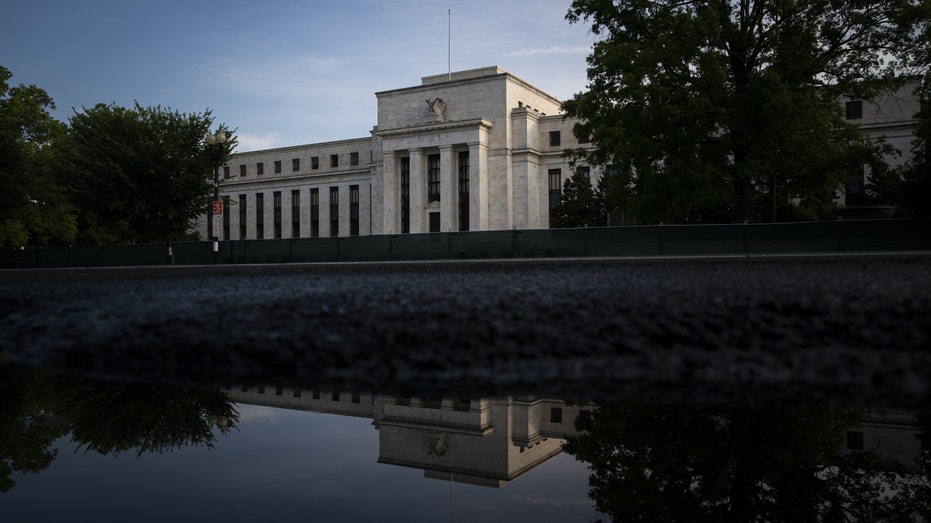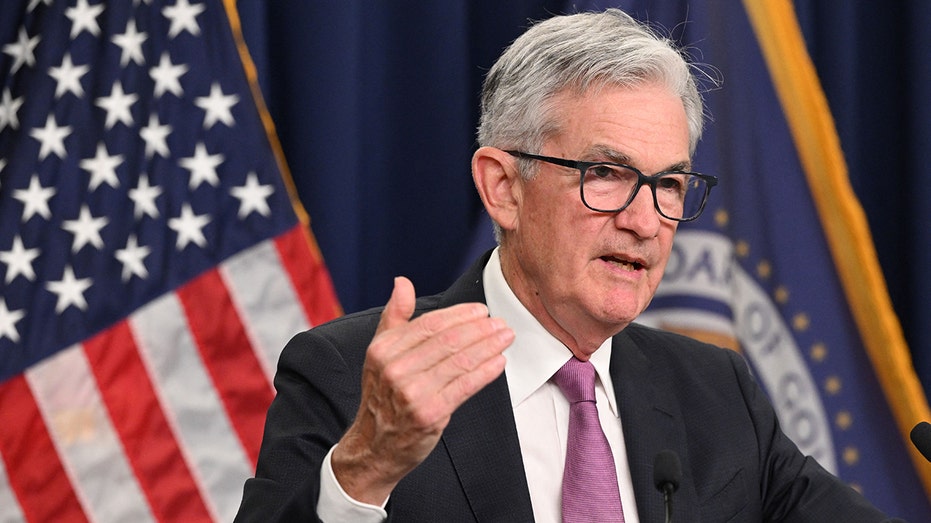US economy likely to face recession by year's end as growth continues to slow, report says
Leading economic index falls for fifth consecutive month, signaling recession
Fed tightening spurred 'the great housing recession': Expert
Former Fannie Mae executive Tim Rood provides an overview of the housing market after August homebuilder sentiment plunged on 'Cavuto: Coast to Coast.'
The U.S. economy is cooling off considerably and will likely slide into a recession before the end of the year, The Conference Board warned this week.
The non-profit business organization on Thursday said that its leading economic index — which tracks 10 indicators designed to measure the health of the economy — dropped by 0.4% in July, on top of a 0.7% decline in June.
The gauge has now fallen for five consecutive months, "suggesting recession risks are rising in the near term," said Ataman Ozyildirim, the senior director of economics at The Conference Board.
"Consumer pessimism and equity market volatility as well as slowing labor markets, housing construction, and manufacturing new orders suggest that economic weakness will intensify and spread more broadly throughout the U.S. economy," Ozyildirim said. "The Conference Board projects the U.S. economy will not expand in the third quarter and could tip into a short but mild recession by the end of the year or early 2023."
IS THE UNITED STATES ENTERING A RECESSION?

Gas prices listed at a petrol station in Los Angeles on July 19, 2022. (FREDERIC J. BROWN/AFP via Getty Images / Getty Images)
The index foreshadows economic developments by about seven months.
Gross domestic product (GDP), the broadest measure of goods and services produced in the country, also fell for two straight quarters, with the economy shrinking by 1.6% from January to March and falling by another 0.9% in the period from April to June.
Recessions are technically defined by two consecutive quarters of negative economic growth and are characterized by high unemployment, low or negative GDP growth, falling income and slowing retail sales, according to the National Bureau of Economic Research (NBER), which tracks downturns.
The decline in economic growth in the second quarter meets the technical, but unofficial, criteria for a recession, which requires a "significant decline in economic activity that is spread across the economy and that lasts more than a few months." Still, the NBER — the semi-official arbiter — may not confirm it immediately as it typically waits up to a year to call it.
The NBER has also stressed that it relies on more data than GDP in determining whether there's a recession, such as unemployment and consumer spending, which remained strong in the first six months of the year. It also takes into consideration the depth of any decline in economic activity.

The Federal Reserve approved a second, 75-basis-point interest rate hike in July — triple the usual size — and have indicated that another super-sized rate hike is on the table in September. (Al Drago/Bloomberg via Getty Images / Getty Images)
There are conflicting signs about the economy's health, fueling debate over the state of the economy: The number of Americans filing for unemployment benefits has gradually increased, companies have announced layoffs or hiring freezes, and the housing market is softening.
At the same time, unemployment fell to a near-historic low of 3.5% in July, and consumers are still spending heavily, despite scorching-hot inflation.
Economists remain divided over whether the economy is officially in a recession or not, but they largely agree that avoiding a downturn in the near future will be nearly impossible as the Federal Reserve tries to bring inflation under control by cooling consumer demand. Policymakers approved a second, 75-basis-point interest rate hike in July — triple the usual size — and have indicated that another super-sized rate hike is on the table in September, depending on forthcoming economic data.
Hiking interest rates tends to create higher consumer and business loan rates, which slows the economy by forcing employers to cut back on spending. Mortgage rates have nearly doubled from one year ago, while some credit card issuers have ratcheted up their rates to 20%.

Federal Reserve Board Chairman Jerome Powell speaks during a news conference in Washington on July 27, 2022. (MANDEL NGAN/AFP via Getty Images / Getty Images)
Fed Chairman Jerome Powell has said that tackling inflation remains the central bank's No. 1 priority, even if it means risking a downturn — though he stressed last month that he does not believe the U.S. is currently in a recession.
CLICK HERE TO READ MORE ON FOX BUSINESS
"We think it’s necessary to have growth slow down," Powell said in July. "We actually think we need a period of growth below potential in order to create some slack so that the supply side can catch up."





















